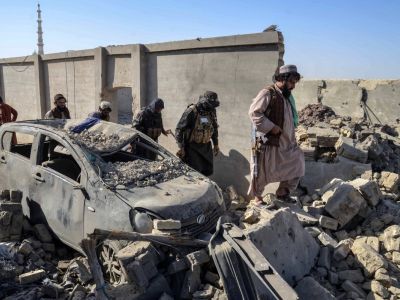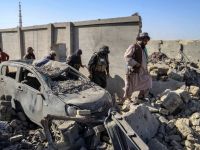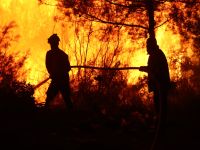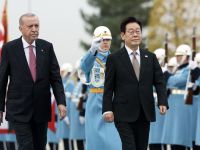The foreign ministers of Russia and Iran, both strong supporters of Afghanistan's Northern Alliance, had talks in New York Friday on the future of the country, Iranian state radio said Saturday.
Russia's Igor Ivanov told Radio Tehran that the Northern Alliance-linked government of Burhanuddin Rabbani, ousted by the Taliban in 1996, "enjoyed legitimacy pending the formation of a representative government".
The Northern Alliance has conquered most of Afghanistan in the past week, defeating the Taliban regime with the help of heavy air support from the United States.
Ivanov also said all Afghan factions must reach a consensus and avoid any action which might damage their unity, and he warned that "the presence of foreign forces would only be acceptable in line with United Nations resolutions."
Iran's Foreign Minister Kamal Kharazi said that the Afghans alone should decide their future. "The Afghans must be allowed to choose a representative government under the auspices of the UN," he said.
Russua said Friday it had sent a top military delegation to Afghanistan to "establish working contact with the leadership of the legitimate government of this nation", amid growing manoeuvring for influence with the post-Taliban regime.
Diplomats further announced that Moscow planned to open a consulate in the strategic northern Afghan city of Mazar-i-Sharif and resume full operations in its Kabul embassy once the building is declared safe.
Russia's participation in the Afghan coalition "is a very important factor for stabilizing the regional situation," President Vladimir Putin told National Public Radio in New York upon concluding his summit with US President George W. Bush.
Moscow has been increasingly concerned that Western powers are ready to back a new coalition government for Afghanistan that would -- seeking to pacify Pakistan to the south -- include a large Taliban contingent.
However Moscow diplomats on Friday conceded that a new government comprised predominantly of Northern Alliance chiefs who only represent a minority of existing Afghan tribes was unlikely to stick together for long -- Tehran (AFP)
© 2001 Al Bawaba (www.albawaba.com)









